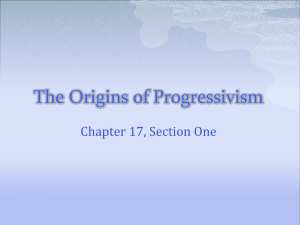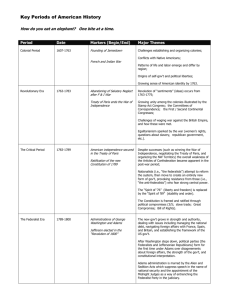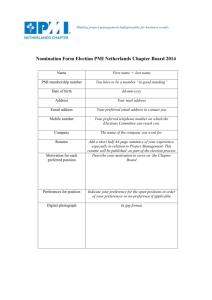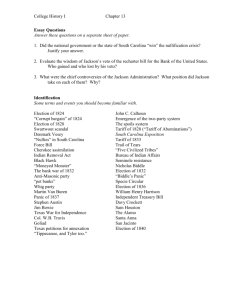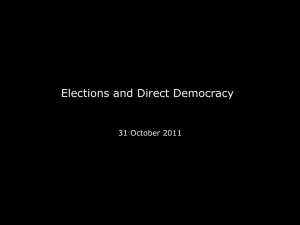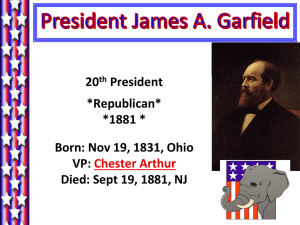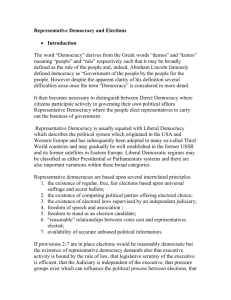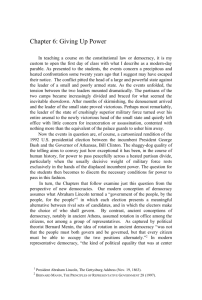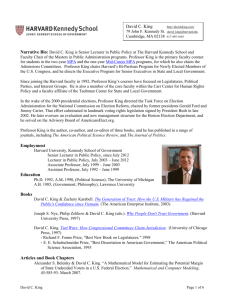19th Century Election Reform
advertisement
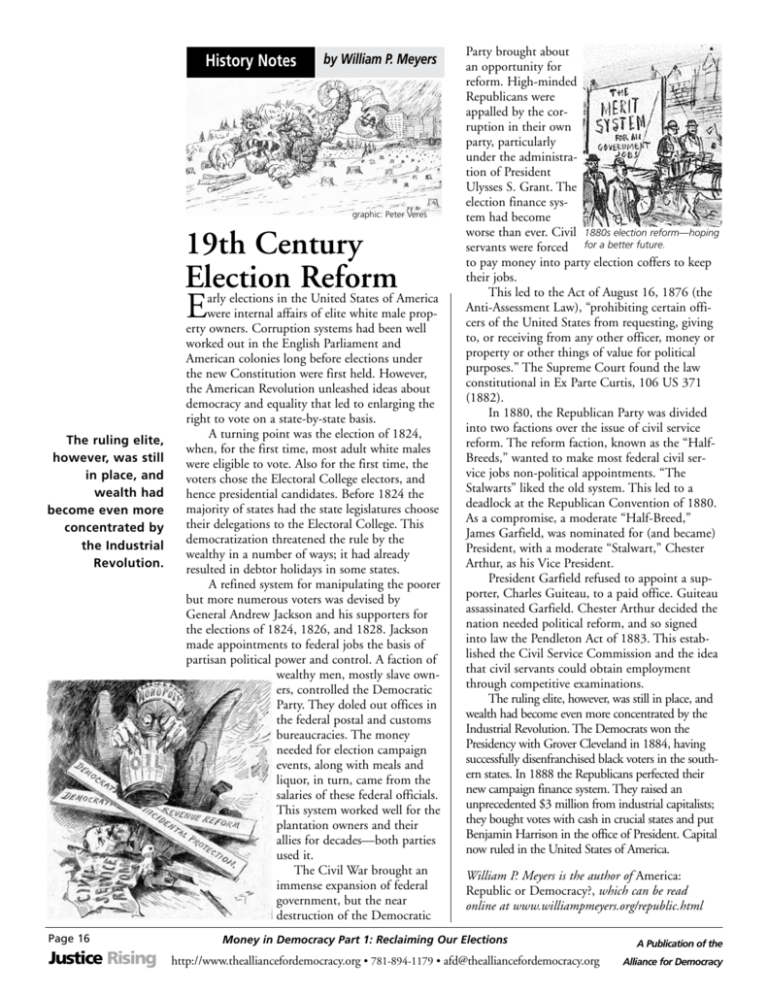
History Notes by William P. Meyers graphic: Peter Veres 19th Century Election Reform arly elections in the United States of America E The ruling elite, however, was still in place, and wealth had become even more concentrated by the Industrial Revolution. Page 16 Justice Rising were internal affairs of elite white male property owners. Corruption systems had been well worked out in the English Parliament and American colonies long before elections under the new Constitution were first held. However, the American Revolution unleashed ideas about democracy and equality that led to enlarging the right to vote on a state-by-state basis. A turning point was the election of 1824, when, for the first time, most adult white males were eligible to vote. Also for the first time, the voters chose the Electoral College electors, and hence presidential candidates. Before 1824 the majority of states had the state legislatures choose their delegations to the Electoral College. This democratization threatened the rule by the wealthy in a number of ways; it had already resulted in debtor holidays in some states. A refined system for manipulating the poorer but more numerous voters was devised by General Andrew Jackson and his supporters for the elections of 1824, 1826, and 1828. Jackson made appointments to federal jobs the basis of partisan political power and control. A faction of wealthy men, mostly slave owners, controlled the Democratic Party. They doled out offices in the federal postal and customs bureaucracies. The money needed for election campaign events, along with meals and liquor, in turn, came from the salaries of these federal officials. This system worked well for the plantation owners and their allies for decades—both parties used it. The Civil War brought an immense expansion of federal government, but the near destruction of the Democratic Party brought about an opportunity for reform. High-minded Republicans were appalled by the corruption in their own party, particularly under the administration of President Ulysses S. Grant. The election finance system had become worse than ever. Civil 1880s election reform—hoping servants were forced for a better future. to pay money into party election coffers to keep their jobs. This led to the Act of August 16, 1876 (the Anti-Assessment Law), “prohibiting certain officers of the United States from requesting, giving to, or receiving from any other officer, money or property or other things of value for political purposes.” The Supreme Court found the law constitutional in Ex Parte Curtis, 106 US 371 (1882). In 1880, the Republican Party was divided into two factions over the issue of civil service reform. The reform faction, known as the “HalfBreeds,” wanted to make most federal civil service jobs non-political appointments. “The Stalwarts” liked the old system. This led to a deadlock at the Republican Convention of 1880. As a compromise, a moderate “Half-Breed,” James Garfield, was nominated for (and became) President, with a moderate “Stalwart,” Chester Arthur, as his Vice President. President Garfield refused to appoint a supporter, Charles Guiteau, to a paid office. Guiteau assassinated Garfield. Chester Arthur decided the nation needed political reform, and so signed into law the Pendleton Act of 1883. This established the Civil Service Commission and the idea that civil servants could obtain employment through competitive examinations. The ruling elite, however, was still in place, and wealth had become even more concentrated by the Industrial Revolution. The Democrats won the Presidency with Grover Cleveland in 1884, having successfully disenfranchised black voters in the southern states. In 1888 the Republicans perfected their new campaign finance system. They raised an unprecedented $3 million from industrial capitalists; they bought votes with cash in crucial states and put Benjamin Harrison in the office of President. Capital now ruled in the United States of America. William P. Meyers is the author of America: Republic or Democracy?, which can be read online at www.williampmeyers.org/republic.html Money in Democracy Part 1: Reclaiming Our Elections http://www.thealliancefordemocracy.org • 781-894-1179 • afd@thealliancefordemocracy.org A Publication of the Alliance for Democracy

